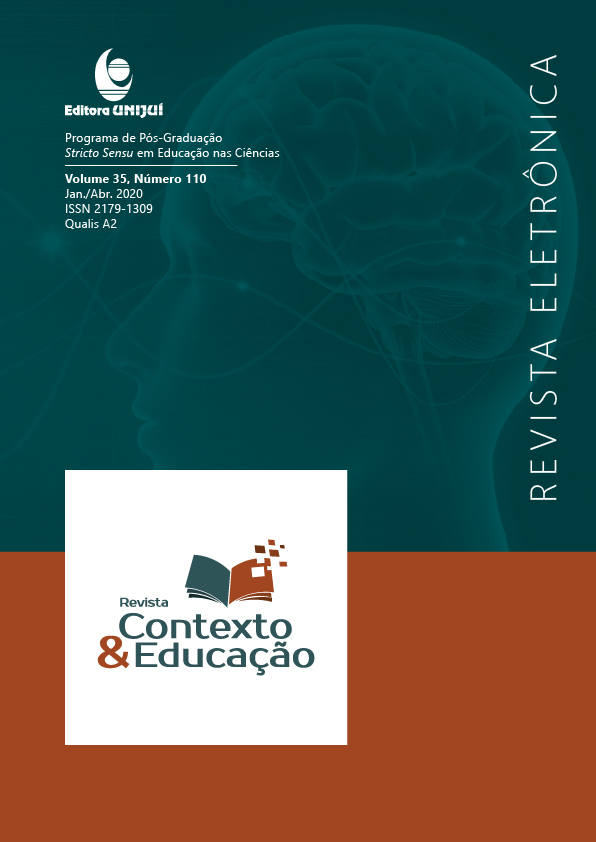PROGRAM CONTENTS ON SCIENCE TEXTBOOKS FROM 6TH TO 9TH GRADE OF BRAZILIAN ELEMENTARY SCHOOL
DOI:
https://doi.org/10.21527/2179-1309.2020.110.241-255Keywords:
Livro Didático de Ciências. Programa Nacional do Livro Didático. Anos Finais do Ensino Fundamental. Conteúdos Curriculares. Ensino de Ciências.Abstract
This paper investigates the organization of the Science contents present on textbooks from Secondary school, approved by the National Textbook Program in 2017, regarding the methodological framework of content analysis. Two categories of collections were established by the researchers: the traditional and the non-tradicional Science textbooks. Data analysis revealed ten Science collections from the 2017 Textbooks’ Guide seem to propose a traditional Science aspect, according to the distribution of the Science textbooks, while non-traditional textbooks are three collections. We infer that there are no changes in the content structure of these Science Textbooks since the traditional textbook is possibly more selected yet, thus the innovative character collections have less adherence by the active teachers. We observed this choice leads the textbook to remain conceived within a traditional model in relation to the contents, it is a factor that persists strongly in its production, with a great impact on the curricular structure of the collections. We conclude that the set of collections remains concentrated in an organization outdated according to the current educational legislation, centered on compartmentalized and non - integrated areas of knowledge, instead of integrated thematic axes and with a progressive conceptual approach throughout the school years.
Downloads
Published
How to Cite
Issue
Section
License
By publishing in Revista Contexto & Educação, authors agree to the following terms:
All works are published under the Creative Commons Attribution 4.0 International License (CC BY 4.0), which allows:
Sharing — to copy and redistribute the material in any medium or format;
Adaptation — to remix, transform, and build upon the material for any purpose, even commercially.
These permissions are irrevocable, provided that the following terms are respected:
Attribution — authors must be properly credited, a link to the license must be provided, and any changes made must be indicated.
No additional restrictions — no legal or technological measures may be applied that legally restrict others from doing anything the license permits.
Notices:
The license does not apply to elements that are in the public domain or covered by legal exceptions.
The license does not grant all necessary rights for specific uses (e.g., image rights, privacy, or moral rights).
The journal is not responsible for the opinions expressed in the articles, which are the sole responsibility of the authors. The Editor, with the support of the Editorial Board, reserves the right to suggest or request modifications when necessary.
Only original scientific articles presenting research results of interest that have not been previously published or simultaneously submitted to another journal with the same purpose will be accepted.
Mentions of trademarks or specific products are intended solely for identification purposes and do not imply any promotional relationship by the authors or the journal.
License Agreement (for articles published from October 2025): Authors retain the copyright to their article and grant Revista Contexto & Educação the right of first publication.


